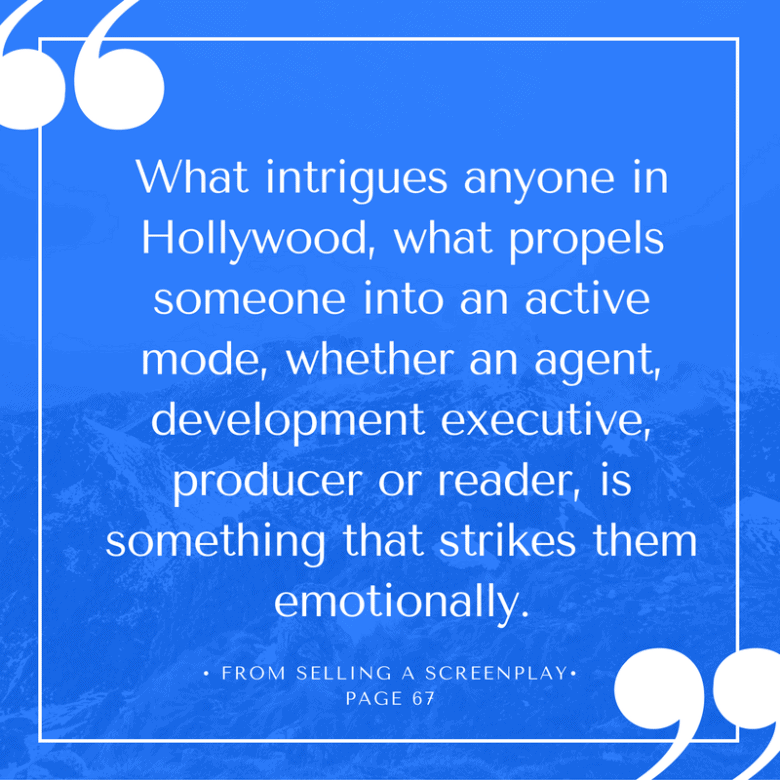The RoughWriter
There it is. The blank page. Or screen. It’s perfect, pristine, shimmering with possibilities. You want the words you impart on this perfect canvas to be worthy. To flow with lyrical, righteous, and passionate… stuff. No, scratch that, not ‘stuff’ – it must be classic Oscar, Emmy, Tony award winning scriptness. Wait. What? ‘Scriptness?’ And now it’s ruined. The blank page, which was once so full of hope, is now ruined. Crumple paper, or delete, delete, delete. Time for coffee.
Such pressure, the blank page. Why is it so hard to allow for imperfection? It’s not called a rough draft because it’s perfect. So go ahead and be a RoughWriter!
In his book, “Screenplay – The Foundations of Screenwriting” Syd Field put it very bluntly, “Let yourself write shitty pages, with stilted, direct, dumb, and obvious dialogue. Don’t worry about it. Just keep writing. Dialogue can always be cleaned up during the rewrite. ‘Writing is rewriting’ is the ancient adage.”
Currently, I am a mentor for a group of very talented MFA screenwriters. In the first semester, each student selected the topic of their screenplays, wrote beat sheets, and narrative outlines. At this point, two writers decided they no longer wanted to write the stories they’d chosen and switched – went through the earlier process again and then began writing script pages. Then a third writer decided her pages were awful, her story was stupid and it was boring. One of the first two writers worried that well, maybe the new idea wasn’t good either.
To clarify, none of the stories were boring. What I was hearing from these students was doubt, resistance… you know the fear of failure. They had each done great work. But the Inner Critic had moved to the foreground and was doing its best to get them to give up.
What to do? It was time for the talk, as follows:
First drafts are never perfect. This is where inspiration meets the craft of screenwriting – putting in the work, no matter if it sucks at first. Do not listen to the Inner Critic in the rough draft, or you’ll never get to the final draft.
As you begin, often the I.C. will tell you it’s boring, it’s not working, change the opening, drop this project, what the hell were you thinking, you have nothing to say…
Do. Not. Listen.
You were excited about your story for a reason. Self-doubt, masquerading as the inner critic, disguises itself with making you feel bored, or that you don’t like it anymore. This is where the work of your Outline is absolutely vital.
Just follow the Outline. Even if you think it’s terrible.
It’s amazing how objective we can be once the rough draft – the ugly draft – is completed. You can then see where to improve, edit, bolster, etc. When you start writing, your creative mind is still muddling through and the worst thing to do is to stop. So keep going.
And yes, you’ll make some adjustments as you write – but keep writing and don’t throw out or disparage your Outline. It is your roadmap. Let it guide you.
Please do not let your Inner Critic slow you down!!!
So, the good news is, each student responded with flying colors. They wrote through the doubt and came through on the other side. Writing through the pain of not-quite-inspired work solved story problems. By completing what might be a lousy scene, it became clear what wasn’t working, because it was no longer a vague jumble in the brain. It was right there in all its ugly glory, ready or the writer to apply the craft of revising and polishing. It’s truly a relief. And some of what was thought to be bad looked pretty good!
Staying true to what inspired you in the beginning, even when it didn’t feel like it was working, is how wonderful screenplays get written, and how they get made.
In “Selling A Screenplay” Syd wrote: “What intrigues anyone in Hollywood, what propels someone into an active mode …is something that strikes them emotionally.”
And that starts with the screenwriter. Stick with what struck you emotionally when the storytelling process began. It will shine through in the end.
As this year draws to a close, and we are poised for new adventures in storytelling as the new year begins, remember: When the writing gets rough, the RoughWriter keeps going.
Happy writing!


Comments are closed.